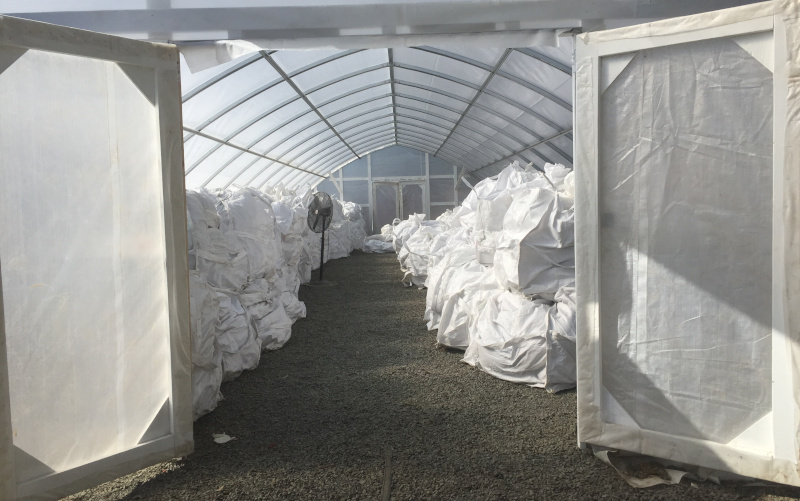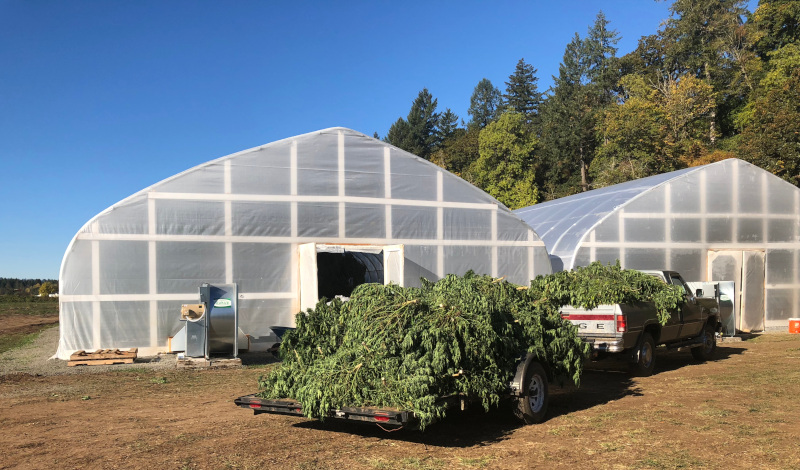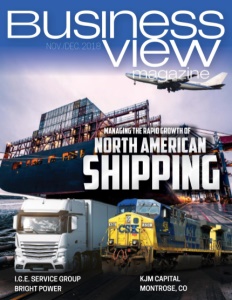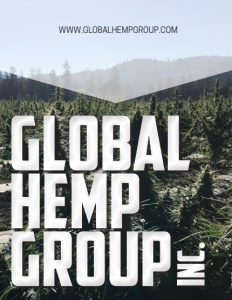Global Hemp Group Inc.
Healthier future through sustainable business strategies
Business View Magazine interviews Curt Huber, CFO, and Charles Larsen, Pres/CEO, of Global Hemp Group Inc. for our focus on the cannabis industry in Canada.
Global Hemp Group Inc. (GHG) is headquartered in Vancouver, British Columbia, with CBD hemp cultivation operations in New Brunswick and Oregon. The company was founded in 2014 with a philosophy of creating a healthier future through sustainable business strategies and is focused on a multi-phased strategy to build a strong presence in the industrial hemp industry in Canada and the United States.
The first phase is to develop hemp cultivation for the extraction of cannabinoids (CBD, CBG, CBN, & CBC) and create a near-term revenue stream that will allow the company to expand and develop successive phases of the strategy. Under this first phase, the Company has begun cultivating hemp at projects in the Province of New Brunswick and the State of Oregon. The second phase of the plan will focus on the development of value-added industrial products utilizing the processing of the whole hemp plant.
Global Hemp Group supplies high-quality, sustainable, raw materials derived from the hemp plant. Phase Two will operate in the automotive, building materials, bio-composites, energy-related markets, food, nutritional and nutraceuticals, guided by the overarching theme of “global environmental stewardship.” Sustainability and social responsibility are key aspects in all its endeavors.
In a recent interview with Business View Magazine, Charles (Charlie) Larsen, President and CEO of Global Hemp Group Inc., and company CFO, Curt Huber, shared insights into the past, present, and future of this innovative company and the amazing potential the hemp industry has for the betterment of our planet. The following is an edited transcript of that discussion:
BVM: What business model was Global Hemp Group following when you started the company?
Larsen: “GHG started with a purely industrial solutions approach; building materials, food products, textiles. That was our focus and it really didn’t get traction. The investment in infrastructure required to do that was longer than most investors wanted to wait for ROI, so the first few years we grew seed for distribution for food. In 2016, CBD began to be a viable product line for hemp – that hadn’t existed when we started, it was all coming from the cannabis side. Now hemp has sex appeal with respect to cannabinoids that are beneficial for consumers, and we see that as the driving force to subsidize the industrial side of things, where we can take what we earn on the cultivation and distribution of cannabidiol and, eventually, other cannabinoids, and use that capital to build the infrastructure, ourselves, and speed up the ROI process for the company.
“Once we significantly scale our operations in North America, we might venture out. We get calls from all over the world asking us to get involved in hemp projects in countries that have legalized and are looking for expertise in the area. But the U.S. and Canada are our focus for now. Once we get through this next crop and are able to generate some significant revenue, we can look at other projects elsewhere, but we really want to expand in New Brunswick and Oregon first.”

BVM: In what ways is hemp beneficial to the economy, the environment, and health and wellness?
Larsen: “The time from soil to harvest depends on the variety, but the growth cycle typically takes three to four months. It grows so fast, sequesters so much carbon, that it’s very beneficial to the environment. The building materials aspect is one of the things we’re really excited about. The building industry is very environmentally toxic. But with a hemp crop, you can cultivate, process, and build onsite – no cutting of trees and shipping of timber and materials from all over.
“I got into this after 25 years in the investment management business, because it was a blank slate. It was new, legislatively challenging, and has none of the infrastructure that normal industries have. No matter what education or expertise you have in other industries, you can apply it to hemp. With cannabis, you have medical and recreational. Hemp covers almost every other sector. It’s the only plant on earth that can feed, clothe, house, fuel, and medicate society. You don’t really need much more to survive.
“Over the next decade, we see the opportunity to transition hemp into different economic sectors to allow us to fix what we broke – the environment, mainly, but our health, as well. Cannabinoids are tremendously beneficial to humans and animals. We produce cannabinoids within our own bodies, like vitamins, just not enough of them to prevent diseases. That’s why we look at cannabinoids as a supplement, not a drug. CBD has no psycho-tropic effect on the brain – you don’t get high, you just feel good. Getting the science and medicine worlds involved, having them see and validate some of the anecdotal evidence that we’ve already proven, that’s what is getting us excited about what can happen in the future.”
BVM: What is GHG actually doing now?
Larsen: “We’re growing, cultivating, and processing hemp, and we’re partnering with companies in other areas. But the facilities we require to process the biomass we’re producing is overwhelming to other industries, because they don’t have capacity to take on the large amount we need to process. In one year, Oregon went from cultivating 2,000 acres to 9,000. Now, everyone in the state is looking for places to dry the material, to extract the cannabinoids, and then there are further phases of decorticating the hemp stalk and separating the fiber (bark) that’s made into textiles and the core that’s made into building materials. There are permanent processing facilities, but most have been geared toward cannabis. Now that hemp is on the scene, the capacity of those operations is dwarfing what’s being done in the cannabis industry.”
Huber: “In our New Brunswick project, we have a number of farmers contracted to work 125 acres for us. Last year was the first time in 20 years that hemp has been grown in that region. Hemp has been legal as a crop in Canada since the end of the ‘90s; it’s one thing to grow it, but there haven’t been a lot of facilities for processing. The advent of CBD and cannabinoids has changed the focus and you’ll see a lot more farmers involved in Canada and the U.S. – that’s why we’re on both sides of the border.”
Larsen: “We have fourth-generation farmers working with us in Oregon. They grow mainly grass seed and some other crops, but hemp produces more revenue per acre than any crop they’ve ever grown. Our sister farm in Colorado operates all greenhouses, so they’re harvesting every two months, year-round. The hemp we’re growing in Oregon is 8 to 12 percent CBD. We’re trying to get those genetics registered with Health Canada, so we can develop a genetics program and a seed bank to start distributing these new varieties to all the farmers who want to grow high yielding cannabinoid hemp in Canada. We’re at the very leading edge of it, right now.”

BVM: What kind of ongoing partnerships do you have?
Larsen: “We’re working with companies such as Phylos Bioscience with a goal to develop genetics geared toward end use. Specific varieties for building materials, textiles, cannabinoids… the agri-science aspect of it is incredible. We’re in a 50-50 partnership with Marijuana Company of America, a publicly traded U.S. company that I helped found. Their subsidiary is Hemp Smart. Vendor/client relationships only go so far, so we decided to get into the actual production of hemp to get the high quality we want. Fab Distro manufactures all our products for Hemp Smart in Southern California. Fab also does the distribution and fulfillment. And scientists have become involved from other companies: for example, Neutrogena is helping us develop our skin care line. We’re trying to recruit people who are already doing what we need in other industries.
“This is our year to really start to generate revenue and create some very significant shareholder value. The last four years has just been the runway to getting there. The impact we believe we can have on the economy, job creation, rural development, the environment, and health issues is really what excites us all. It’s changing lives.”
Check out this handpicked feature on Green Relief – A difference maker in the industry.
AT A GLANCE
WHO: Global Hemp Group Inc.
WHAT: Research, development and distribution of products in the hemp industry
WHERE: Vancouver, BC; Montreal, QC; and Los Angeles, CA
WEBSITE: www.globalhempgroup.com
PREFERRED VENDORS
Doc’s Botanicals – www.docsbotanicals.com


